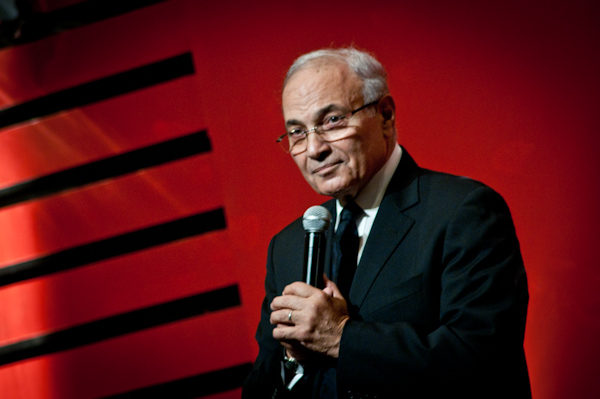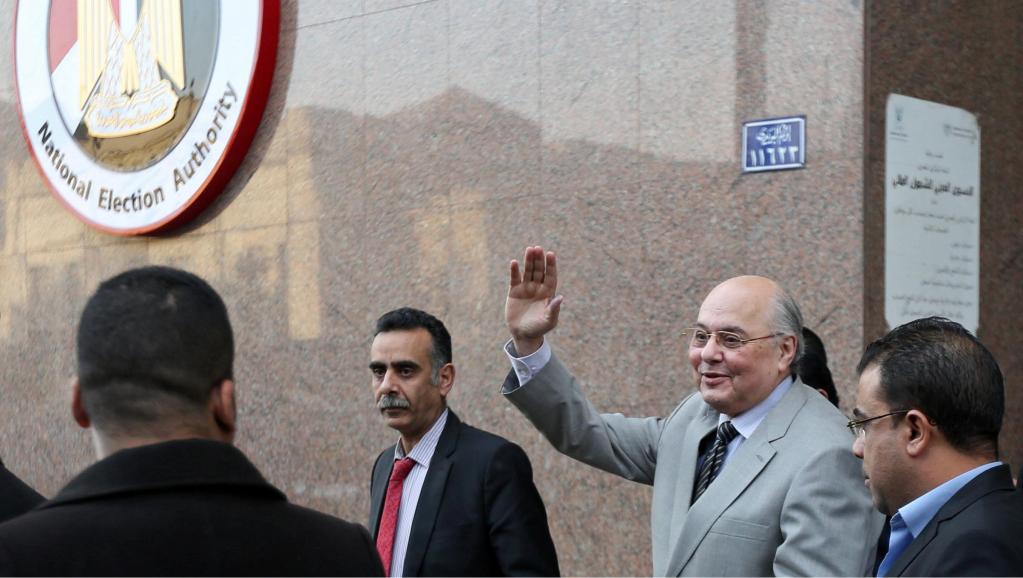
Political figures are trading accusation over who is responsible for Ahmed Shafiq's leading position in the presidential elections.
Shafiq, the last prime minister appointed by ousted President Hosni Mubarak, is expected to compete in the runoffs against Muslim Brotherhood candidate Mohamed Morsy.
Ayman Nour, head of the liberal Ghad al-Thawra Party, held the revolutionary candidates responsible for Shafiq's strong position.
“They put us in this trap. They didn’t collaborate with each other on a presidential team [so as not to split the vote]. If they had, one of them would have won from the first round,” Nour was quoted as saying according to privately-owned newspaper Youm7.
Abdullah al-Ashal, a former deputy foreign minister who briefly ran for president before withdrawing and endorsing Morsy, told Youm7 that he suspects some state institutions ordered their employees to vote for Shafiq, with the support of officials who belonged to the formerly ruling National Democratic Party.
Mazar Shaheen, a pro-revolution imam at the Omar Makram mosque in Tahrir Square, said in his Friday sermon, "I am not surprised by the results of the election announce so far. It came as a natural consequence of steps taken by the revolutionary candidates, who insisted not to divide and did not unite."
"The revolution supporters are many more, and if they had united they would have swept the election," Shaheen said, adding that Parliament is responsible for letting former regime figures reach the advanced stages of the presidential election because they did not pass a law banning former regime figures from running earlier.
Tarek al-Zomor, a member of the hardline group Jama'a al-Islamiya's Shura Council, called on Copts to apologize if it is proven that they voted collectively for Shafiq.
Zomor told Al-Masry Al-Youm that what he called church instructions directing Copts to vote for Shafiq were a "grave mistake."
Zomor added that the media's counter-revolutionary stance prompted "simple" people to lose faith in the revolution and vote for former regime figures.
"The media's attacks, day and night, on the revolution caused Shafiq to reach the runoff, as the majority of media outlets participated in a deliberate smear campaign against the revolution, which prompted poor people to lose faith in this revolution and forced them to vote for remnants," Zomor said.
Zomor added that another reason for Shafiq's success was that former NDP leaders and businessmen backed Shafiq because they considered the election a battle of life or death, in addition to Copts, Sufis and tribal leaders.



